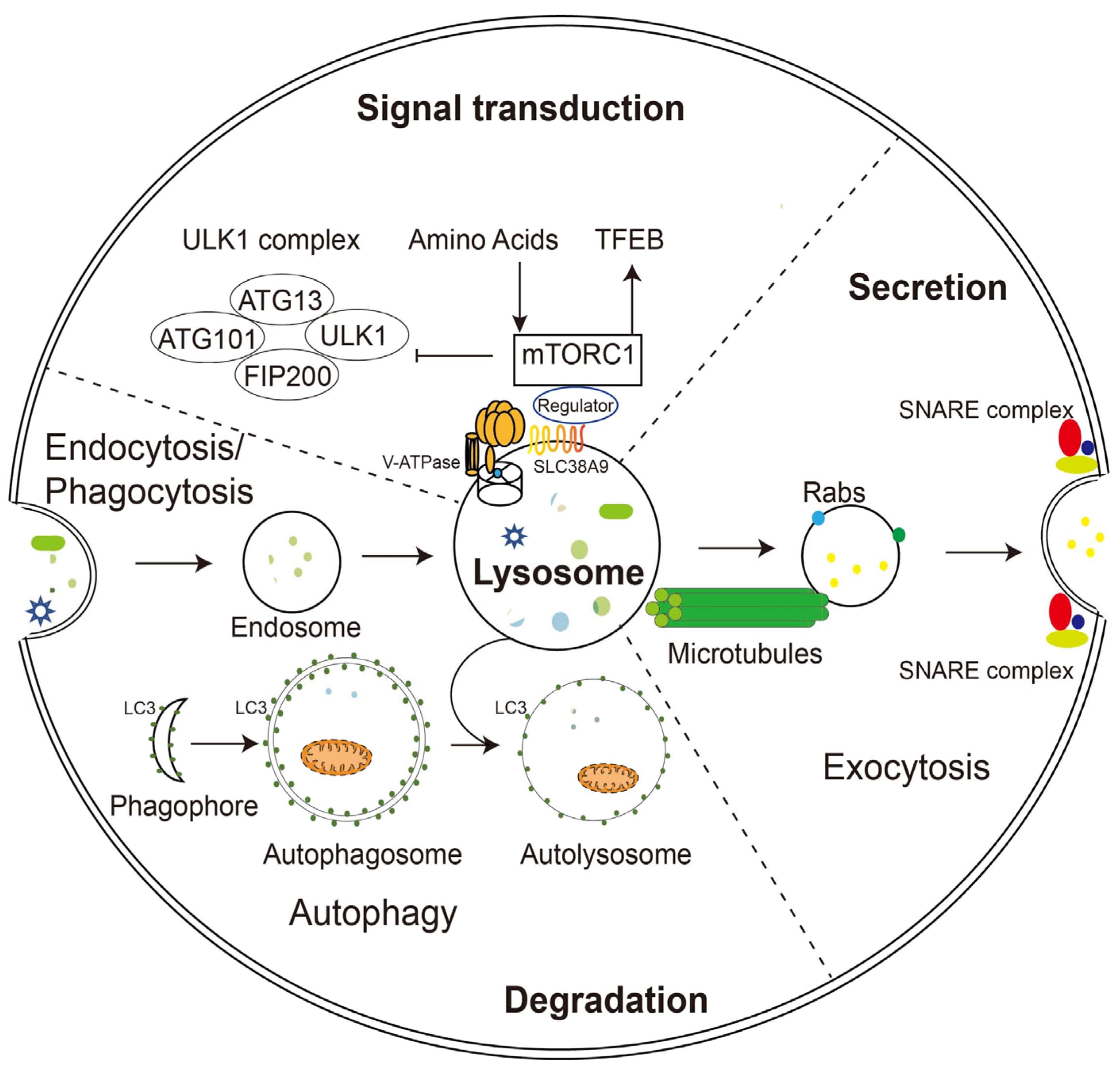
Lysosomal targeting is a fascinating process that plays a crucial role in maintaining cellular homeostasis and overall organismal health. Within our cells, lysosomes are responsible for breaking down and recycling various molecules, including proteins, lipids, and carbohydrates. This intricate system relies on the precise targeting of specific molecules to the lysosomes to ensure their efficient degradation.
In this article, we will explore 18 extraordinary facts about lysosomal targeting. From the mechanisms involved in protein sorting to the impact of lysosomal dysfunction on human health, we will delve into the intricate world of lysosomal targeting. So, buckle up and get ready to dive into the fascinating realm of cellular transport and degradation!
Key Takeaways:
- Lysosomal targeting is like a cellular delivery system that ensures proteins are sent to the “recycling center” (lysosomes) for cleanup, preventing cellular damage and maintaining overall health.
- Defects in lysosomal targeting can lead to serious disorders, but understanding and manipulating this process could lead to new treatments for diseases like cancer and neurodegenerative disorders.
Lysosomal targeting directs proteins to the lysosomes.
Lysosomes are cellular organelles responsible for degradation and recycling of various biomolecules. Lysosomal targeting ensures that proteins are delivered to the lysosomes for degradation or modification.
It involves specific targeting signals.
Proteins destined for lysosomal targeting contain specific targeting signals, such as mannose-6-phosphate (M6P) or lysosomal-associated membrane protein (LAMP) domains, which guide them to the lysosomes.
Lysosomal targeting is mediated by transport receptors.
Transport receptors recognize the targeting signals on proteins and facilitate their trafficking from the Golgi apparatus to the lysosomes.
Lysosomal targeting is essential for maintaining cellular homeostasis.
Proper lysosomal targeting ensures the timely degradation of unwanted or malfunctioning proteins, preventing their accumulation and potential cellular damage.
Defects in lysosomal targeting can lead to lysosomal storage disorders.
Mutations in genes encoding lysosomal targeting signals or transport receptors can disrupt the proper function of lysosomes, resulting in lysosomal storage disorders like Tay-Sachs disease or Gaucher’s disease.
Lysosomal targeting is involved in autophagy.
Autophagy is a cellular process that involves the degradation and recycling of cellular components. Lysosomal targeting plays a crucial role in delivering autophagosomes to the lysosomes for degradation.
It is regulated by signaling pathways.
Various signaling pathways, such as the mTOR pathway or the unfolded protein response, regulate lysosomal targeting to coordinate cellular responses to stress or nutrient availability.
Lysosomal targeting is important for antigen presentation.
Lysosomal targeting enables the degradation of intracellular antigens into peptide fragments, which are then presented on the cell surface by major histocompatibility complex (MHC) molecules for immune surveillance.
It plays a role in lysosomal exocytosis.
Lysosomal targeting is involved in the fusion of lysosomes with the plasma membrane, allowing the release of lysosomal enzymes and other molecules into the extracellular space.
Lysosomal targeting can be hijacked by viruses.
Some viruses exploit the lysosomal targeting machinery to evade the immune response or facilitate their replication within host cells.
Lysosomal targeting is evolutionarily conserved.
The mechanisms and components involved in lysosomal targeting are highly conserved across different organisms, highlighting its fundamental importance in cellular biology.
Defective lysosomal targeting can affect neuronal function.
Impaired lysosomal targeting in neurons can lead to the accumulation of toxic protein aggregates and contribute to neurodegenerative disorders like Alzheimer’s or Parkinson’s disease.
Lysosomal targeting can be regulated by post-translational modifications.
Post-translational modifications, such as phosphorylation or ubiquitination, can modulate the lysosomal targeting of proteins, influencing their fate in the lysosomes.
Lysosomal targeting is involved in lipid metabolism.
Lysosomes play a critical role in the breakdown and recycling of cellular lipids. Lysosomal targeting ensures the proper delivery of lipid-degrading enzymes to the lysosomes.
It mediates the lysosomal degradation of damaged organelles.
Lysosomal targeting is essential for the elimination of damaged or dysfunctional organelles through a process called lysosomal autophagy.
Lysosomal targeting is crucial for cellular development and differentiation.
During development, proper lysosomal targeting is essential for the degradation and remodeling of extracellular matrix components, cell signaling molecules, and other regulatory proteins.
It contributes to cellular response to oxidative stress.
Lysosomal targeting is involved in removing oxidatively damaged proteins and organelles, protecting cells from oxidative stress-induced damage.
Lysosomal targeting is a potential therapeutic target.
Manipulating lysosomal targeting mechanisms holds promise for developing novel therapies for lysosomal storage disorders, cancer, and other diseases associated with lysosomal dysfunction.
In conclusion, understanding the extraordinary intricacies of lysosomal targeting provides valuable insights into the essential processes that maintain cellular health and integrity. These 18 extraordinary facts shed light on the critical role of lysosomal targeting in various biological pathways, highlighting its significance in both normal cellular function and disease pathology.
Conclusion
In conclusion, lysosomal targeting is an extraordinary biological process that plays a crucial role in maintaining proper cellular function and homeostasis. Through intricate mechanisms, cells are able to direct specific molecules and proteins to the lysosomes, ensuring their proper degradation and recycling. This process is essential for the removal of waste materials, regulation of cellular metabolism, and the prevention of diseases associated with lysosomal dysfunction.As we have explored in this article, lysosomal targeting involves various sorting signals, trafficking pathways, and molecular machinery that work in harmony to deliver cargoes to the lysosomes. These cargoes may include proteins, lipids, sugars, and even pathogens. The specificity and efficiency of lysosomal targeting are truly remarkable, highlighting the intricate nature of cellular processes.By understanding the fascinating facts about lysosomal targeting, we gain insights into the underlying mechanisms that govern cellular function and disease development. Continued research in this field will help us unravel further mysteries and unlock new therapeutic approaches for lysosomal storage disorders and other related conditions. Lysosomal targeting truly showcases the complexity and beauty of biological systems.
FAQs
1. What is lysosomal targeting?
Lysosomal targeting is a process by which cells direct specific molecules and proteins to the lysosomes, ensuring their proper degradation and recycling.
2. How does lysosomal targeting occur?
Lysosomal targeting occurs through the recognition of sorting signals on molecules or proteins, which are then trafficked through various pathways to reach the lysosomes.
3. What are sorting signals?
Sorting signals are specific amino acid sequences or motifs that act as “zip codes” to guide molecules or proteins to their appropriate destinations within the cell, including the lysosomes.
4. What is the importance of lysosomal targeting?
Lysosomal targeting is crucial for cellular function as it ensures the removal of waste materials, regulates cellular metabolism, and prevents the accumulation of toxic substances in the cell.
5. Can lysosomal targeting be disrupted?
Yes, disruptions in lysosomal targeting can lead to lysosomal storage disorders, where certain molecules or proteins accumulate in the lysosomes and impair cellular function.
6. Are there any therapeutic implications of lysosomal targeting?
Yes, understanding lysosomal targeting can help develop targeted therapies for lysosomal storage disorders and other diseases associated with lysosomal dysfunction.
7. Are all cellular components targeted to the lysosomes?
No, not all cellular components are targeted to the lysosomes. Certain molecules or proteins are directed to other cellular compartments or undergo recycling through different pathways.
8. Can lysosomal targeting be influenced by external factors?
Yes, external factors such as nutritional status, stress, and disease can influence lysosomal targeting and the overall efficiency of the lysosomal system.
9. How is lysosomal targeting related to autophagy?
Lysosomal targeting is closely linked to autophagy, a cellular process that involves the sequestration and degradation of cellular components within autophagosomes, which then fuse with lysosomes for degradation.
10. What is the future of research in lysosomal targeting?
The future of research in lysosomal targeting involves uncovering more details about the molecular mechanisms involved, identifying new sorting signals, and developing targeted therapies for lysosomal storage disorders.
Lysosomal targeting's extraordinary facts reveal cellular cleanup's crucial role in maintaining homeostasis. From directing proteins to lysosomes using specific targeting signals to regulating autophagy and lipid metabolism, lysosomal targeting's importance cannot be overstated. Defects in this process can lead to lysosomal storage disorders and affect neuronal function, while its evolutionary conservation highlights its significance across species. As a potential therapeutic target, understanding lysosomal targeting's intricacies could pave the way for novel treatments. Unravel more fascinating discoveries by exploring the groundbreaking work of Dr. Yoshinori Ohsumi, whose research on autophagy has revolutionized our understanding of cellular processes.
Was this page helpful?
Our commitment to delivering trustworthy and engaging content is at the heart of what we do. Each fact on our site is contributed by real users like you, bringing a wealth of diverse insights and information. To ensure the highest standards of accuracy and reliability, our dedicated editors meticulously review each submission. This process guarantees that the facts we share are not only fascinating but also credible. Trust in our commitment to quality and authenticity as you explore and learn with us.


